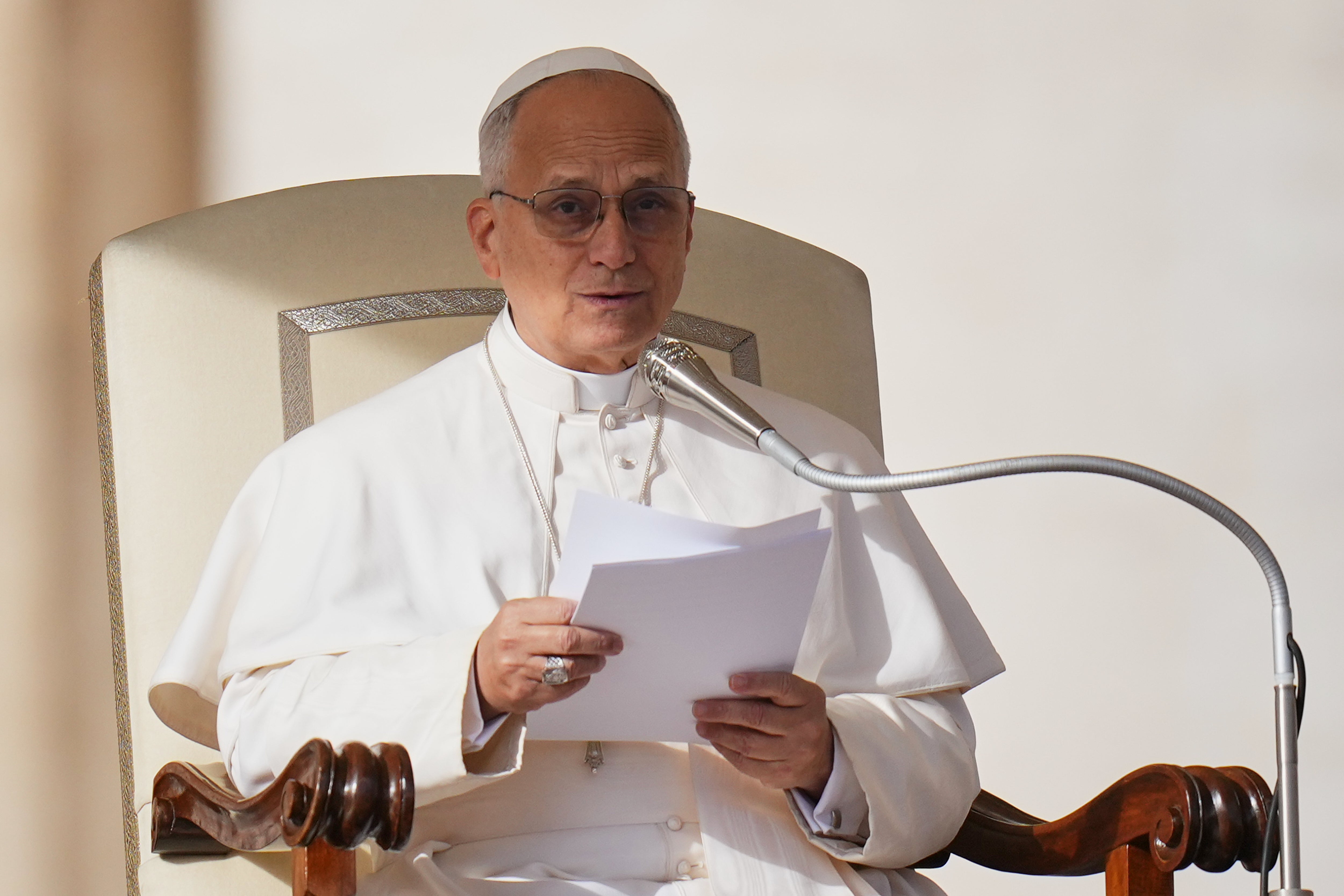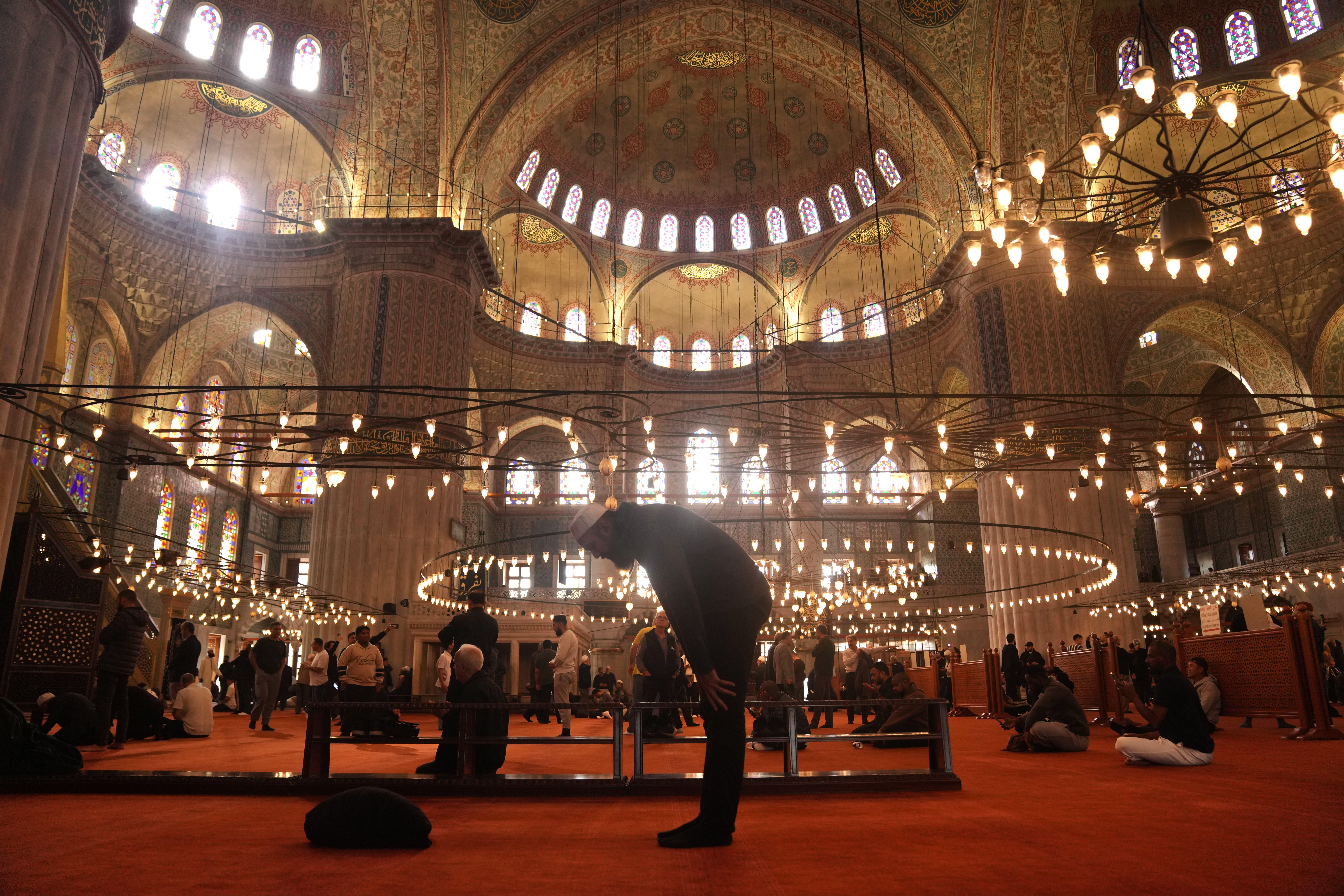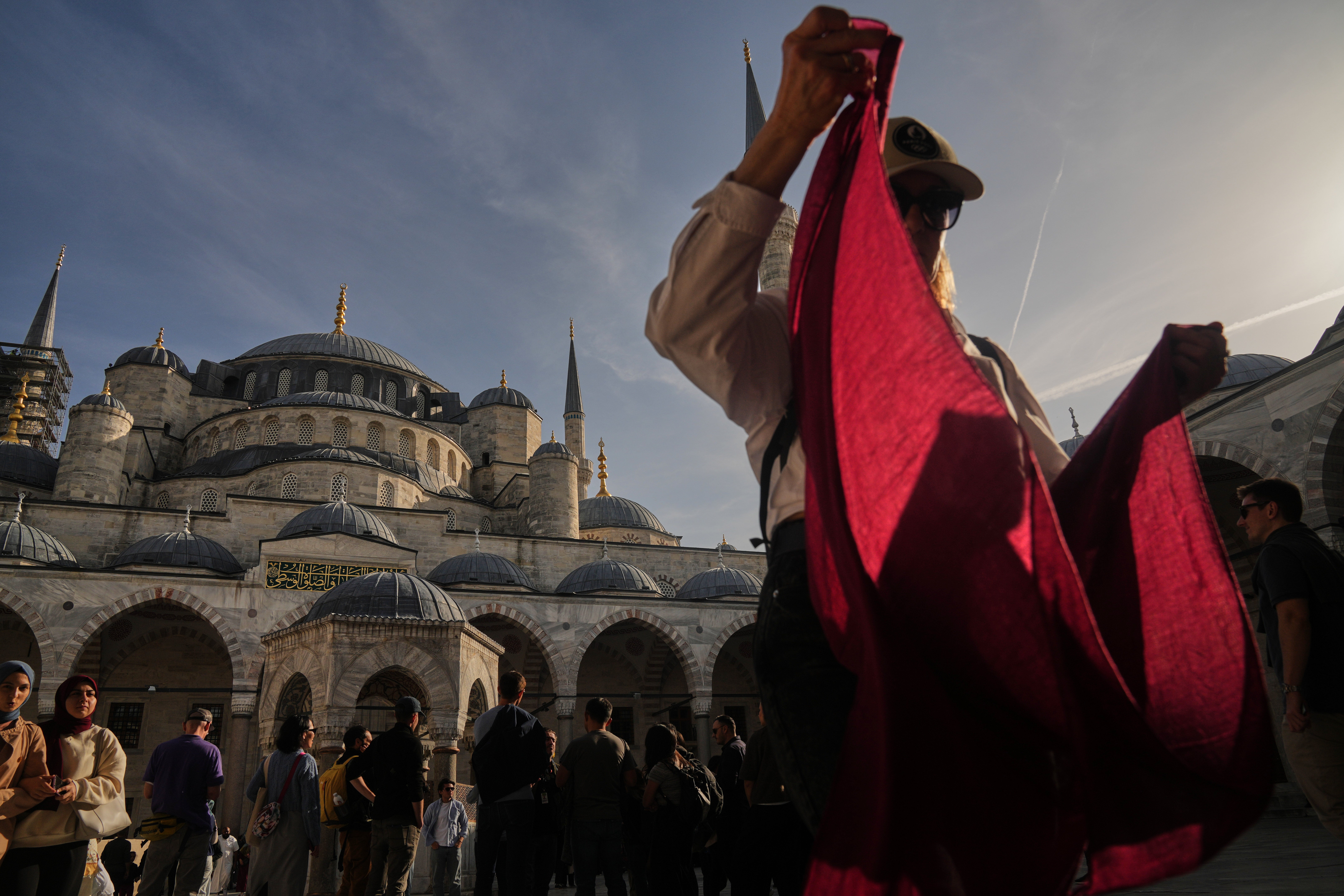- News
Pope Leo XIV will make a notable departure from his predecessors in the first foreign trip of his pontificate
Nicole WinfieldThursday 27 November 2025 09:33 GMT
 ClosePopemobile turned into Gaza children's medical clinic
ClosePopemobile turned into Gaza children's medical clinic
For free real time breaking news alerts sent straight to your inbox sign up to our breaking news emails
Sign up to our free breaking news emails
Sign up to our free breaking news emails
 Email*SIGN UP
Email*SIGN UPI would like to be emailed about offers, events and updates from The Independent. Read our Privacy notice
Pope Leo XIV, the first American pontiff, is set to embark on his inaugural foreign trip, a significant six-day tour of Turkey and Lebanon.
The visit, scheduled from November 27 to December 2, presents crucial opportunities to foster relations with two of the Catholic Church’s primary focuses: Orthodox Christians and Muslims.
In a notable departure from the Vatican’s traditional Italian, the Pope will address audiences exclusively in English in Turkey, and in a combination of English and French in Lebanon, using these languages to articulate a broader message of peace across the Middle East.
Security measures are expected to be exceptionally tight, particularly in the wake of an Israeli strike targeting Hezbollah in Beirut just days before the pontiff’s arrival. This journey holds added poignancy, as it covers destinations the late Pope Francis had intended to visit himself before his health deteriorated.
Lebanon and Turkey are frequent pope destinations
Both Turkey and Lebanon have received multiple popes, starting with Pope Paul VI, the first pontiff to travel internationally, in a sign of their importance to the Holy See.
For the Vatican, Lebanon and its tradition of religious tolerance in the Middle East is a bulwark for Christians in the region, even more so after years of conflict and war that have shrunk Christian communities that date from the time of the Apostles.
 open image in galleryPope Leo XIV delivers his speech during his weekly general audience in St. Peter's Square, at the Vatican (Copyright 2025 The Associated Press. All rights reserved)
open image in galleryPope Leo XIV delivers his speech during his weekly general audience in St. Peter's Square, at the Vatican (Copyright 2025 The Associated Press. All rights reserved)Turkey, for its part, is home to the ecumenical patriarch of the Orthodox Church, and so is a crucial relationship to nurture in the centuries-long quest for Christian unity.
Turkey is a rare country that, with Leo’s visit, can boast of having been visited by the five popes of the modern globe-trotting papacy: Paul VI in 1967, John Paul II in 1979 in one of the first trips of his pontificate, Benedict XVI in 2006 and Francis in 2014.
Paul VI also visited Lebanon during a stopover en route to India in 1964, John Paul II visited Lebanon in 1997 and Benedict XVI in 2012, in the final foreign trip of his pontificate. Francis had tried for years to go, but the country’s instability and then Francis’ poor health precluded a visit.
Orthodox relations
Leo's main reason for traveling to Turkey, the first stop, is to mark the 1,700th anniversary of the Council of Nicaea, Christianity’s first ecumenical council.
Leo will pray with Ecumenical Patriarch Bartholomew, spiritual leader of the world’s Orthodox Christians, at the site of the 325 AD gathering, today’s Iznik in northwestern Turkey, and sign a joint declaration in a visible sign of Christian unity.
 open image in galleryMuslims pray at the Ottoman-era Sultan Ahmed or Blue Mosque, in Istanbul. (Copyright 2025 The Associated Press. All rights reserved)
open image in galleryMuslims pray at the Ottoman-era Sultan Ahmed or Blue Mosque, in Istanbul. (Copyright 2025 The Associated Press. All rights reserved)Eastern and Western churches were united until the Great Schism of 1054, a divide precipitated largely by disagreements over the primacy of the pope.
The Rev. Paolo Pugliese, superior of the Capuchin Catholic friars in Turkey, said the commemoration of the Council of Nicaea – which gave birth to the creed still recited by Christians today – would send a powerful message of unity.
“What better occasion than Nicaea to find again our common identity,” he said.
Interfaith dialogue and the plight of Palestinians
Leo will also visit the Blue Mosque in Istanbul and preside over an interfaith meeting in both Istanbul and in Beirut. Significantly, he will not visit the landmark Hagia Sophia monument in Istanbul as previous popes have done.
In July 2020, Turkey converted Hagia Sophia — once one of the most important historic cathedrals in Christianity and a United Nations-designated world heritage site — from a museum back into a mosque, a move that drew widespread international criticism. At the time, Francis said he was “deeply pained” by the decision.
Clergy in the region say the Vatican’s strong support for Palestinians in Gaza during the Israel-Hamas war, first under Francis and now Leo, has bolstered the church’s credibility among Muslims.
 open image in galleryLocals and tourists visit the Ottoman-era Sultan Ahmed or Blue Mosque. (Copyright 2025 The Associated Press. All rights reserved)
open image in galleryLocals and tourists visit the Ottoman-era Sultan Ahmed or Blue Mosque. (Copyright 2025 The Associated Press. All rights reserved)Security though is expected to be tight, as the regional conflicts have not abated. Israel fired an airstrike on Lebanon’s capital on Sunday that killed Hezbollah’s chief of staff and four others.
Leo said this week such attacks were “always a concern,” but he appealed for all to pursue dialogue, not violence.
Monsignor César Essayan, the apostolic vicar of Beirut for Latin rite Catholics, said Lebanon was the safest place in the region for Leo to visit and a perfect place for him to speak about peace.
“He couldn’t go to Gaza. It’s useless to go to Israel now. It’s too difficult in Syria. This is the only country,” he said of Lebanon. “And here offers him the singularity and this vocation that will allow him to go with a very strong message (of peace) for the whole world.”
The Beirut port blast
The highlight of the Lebanese visit will come on Leo’s last day, Dec. 2, when he spends time in silent prayer at the site of the Aug. 4, 2020, Beirut port blast.
The explosion tore through the Lebanese capital, killing at least 218 people, wounding more than 6,000 and devastating large swaths of Beirut.
 open image in galleryThe destroyed port warehouses at the scene of the Aug. 4 massive explosion that hit the seaport of Beirut, Lebanon. (Copyright 2020 The Associated Press. All rights reserved.)
open image in galleryThe destroyed port warehouses at the scene of the Aug. 4 massive explosion that hit the seaport of Beirut, Lebanon. (Copyright 2020 The Associated Press. All rights reserved.)Lebanese citizens were enraged by the blast, which appeared to be the result of government negligence, coming on top of an economic crisis spurred by decades of corruption and financial crimes. But an investigation has repeatedly stalled, and five years on, no official has been convicted.
Another important moment will come when Leo meets with young Lebanese. He is expected to give them words of encouragement, amid the decades-long flight of Lebanese abroad, while also acknowledging their disillusionment over the failures of generations before them.



